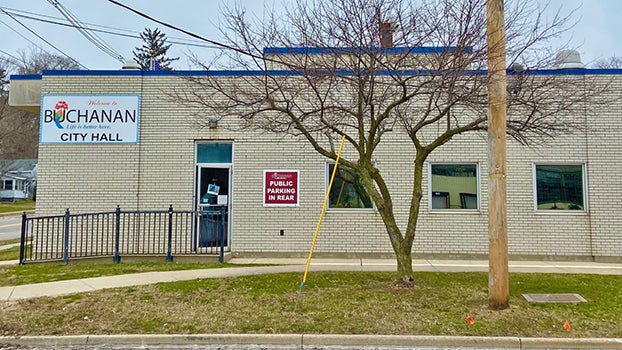Council considers all ratepayers — not just landlords
Published 11:26 pm Wednesday, January 19, 2011
Dowagiac’s dispute with landlords billed for tenants’ unpaid utility bills back to October 2007 exposes a city “dilemma,” City Manager Kevin Anderson told Cass County Rental Association Jan. 18 at Chestnut Towers.
“As a government, elected officials are responsible for having all their meetings in public, making public records and making them available to the public. Now, the dilemma becomes, if there’s an expectation that if a law pertains to somebody, are we then to try to notify them? By the time you work your way through all the laws, you’re never going to be able to contact (all of the) people. The assumption in open government is that city and state government need to have all of their meetings and records open and available in a certain place.”
“Then,” Anderson added, “It is the responsibility of the citizenry to go to that spot, knowing that they can always go to that spot to get that information. Our dilemma becomes trying to identify everybody who might be affected or might have an interest in a law. It’s difficult. There’s a responsibility for information that goes both ways.”
“I’ve always tried to do whatever you guys have asked,” said Vicky James, “so I would think you guys would at least give me the courtesy of letting me know what I need to do without coming back on me five years later. I guess that’s where a lot of us are having problems because we were unaware.”
“One of the concerns I have,” said President Roger Leach of Penn Township, “is we can’t get utility information about tenants until after the fact. We collect deposits and have a certain time frame when tenants move out that we have to return the deposits legally. How are we supposed to be made whole in this situation?”
Anderson answered, “Part of not being able to get information (from City Hall) is there are federal laws” intended to guard against identity theft “that we cannot give that information out, but there’s a way. If within your leases there’s a signed agreement that (permits) release of that information. There’s also a form we’ve got at City Hall that you and the tenant can sign off for the release of this information to my landlord.”
“Obviously, you have the opportunity to opt out” with an affidavit, Mayor Don Lyons said, “but you have to be cognizant enough of your responsibilities as a landlord to make certain that the leases you’re using are appropriate. We’re conforming to state law. At some point, as a business person, you have responsibilities, and part of those responsibilities is knowing the law, which may mean consulting an attorney on a regular basis.”
“Our City Council voted this in and they could repeal the ordinance,” Eunice Murray said.
“We’re not here tonight to negotiate a change in the law,” the city manager said, “though if the council wanted to, it could.
“I want you to also put yourself in City Council’s shoes. City Council has a responsibility to a number of people. Not only to landlords, but to all utility customers. If there are large delinquencies that are uncollected, that has to be paid for somewhere, so costs go up for other customers. Somewhere along the line, council has got to make a conscious decision as to will it use available state laws to their fullest extent to the benefit of all of the ratepayers. That’s part of what goes into that whole discussion.
“There are more constituents they have to deal with than just the landlords. They have to balance those needs, which they worked on very hard. Understand that there are numerous considerations which go into any of these decisions. We’re down to a relatively small amount, about $4,000, that the city’s at-risk for right now, a couple of months into winter — a much better position than previous years. A lot of it has to do with the policy changes.”
Policy changes put in place contain two major differences — the city hangs on to deposits until someone moves out and deposits increase over time in the event of “demonstrated delinquency.”
Say a water, sewer and electric customer pays a $230 deposit to move in. If a customer was “good pay” for 12 consecutive months, the city returned the deposit.
“We no longer do that,” Anderson said.
“We hold on to the deposit until somebody leaves. That way, there’s always a deposit there to cover that. We also added into the deposit language that if you get a shut-off notice and you want it turned back on, not only do you have to pay the balance, but an additional $50, up to $280. If it happens a second time, we add more to it. It can go up a number of times until it gets up to around $450. If we have a tenant who is showing us by experience that they’re unreliable pay, that deposit goes up so we can cover what’s a higher risk.
“You have a wonderful tool intended for them to keep up their payments and not become delinquent,” landlord Svend Jorgensen said. “But the landlords don’t. If we don’t get the rent, we can never turn off service or we’ll be taken to court. You can do all sorts of things, so you go to the weakest link and we’re responsible now. That doesn’t seem fair.”
“We have limited tools,” Anderson disagreed. “We cannot shut off during winter months. There are only certain times of the year we can shut off.”
Landlord Glenda Gibson reminded Jorgensen, “You can evict them.”
“That takes two or three months at our expense,” he said. “They’re not our customers. They’re your customers, responsible to you. That ought to be unconstitutional.”
Anderson addressed another scenario.
“If I don’t pay and I leave and try to go into another place and I owe $200 yet, we’re not going to allow that person to sign up for utilities if they owe money to us. Occasionally, someone can move in without the utility knowing it,” such as a guy moving in with his girlfriend named on the lease, since utilities list under one person’s name.
“The likelihood of me moving into a place owing money now is pretty small,” he said, “because we’ve got a number of lists we check for past dues. I’m not saying it was that way three or four years ago.”
“When the landlord has utilities placed on their taxes, they’ve paid for the tenants, who maybe move somewhere else. They may have been $1,000 behind, but they don’t have to pay anything. Their slate’s wiped clean,” Leach said. “How do we address that, which is very unfair to us? We pay their bill, they’re absolved and they can run up a fresh bill.”
Anderson indicated the city administration is still researching that question.
He said adding utility charges to the tax roll is different than special assessments for mowing or demolishing a building, which require special assessment public hearing notifications.
Changing an ordinance is a two-step process. After “first reading,” or formal introduction, the city clerk publishes its particulars in the legal notices section of the newspaper. Council withholds action until a meeting two weeks later as part of this process.
One of the landlord’s rental properties are in Niles and Niles Township, for which she pays $25 a year for a fireman to check the unit under the property inspection ordinance, which Dowagiac defeated.
The city proposed one following a fatal fire, but that referendum lost on Nov. 4, 2003.






